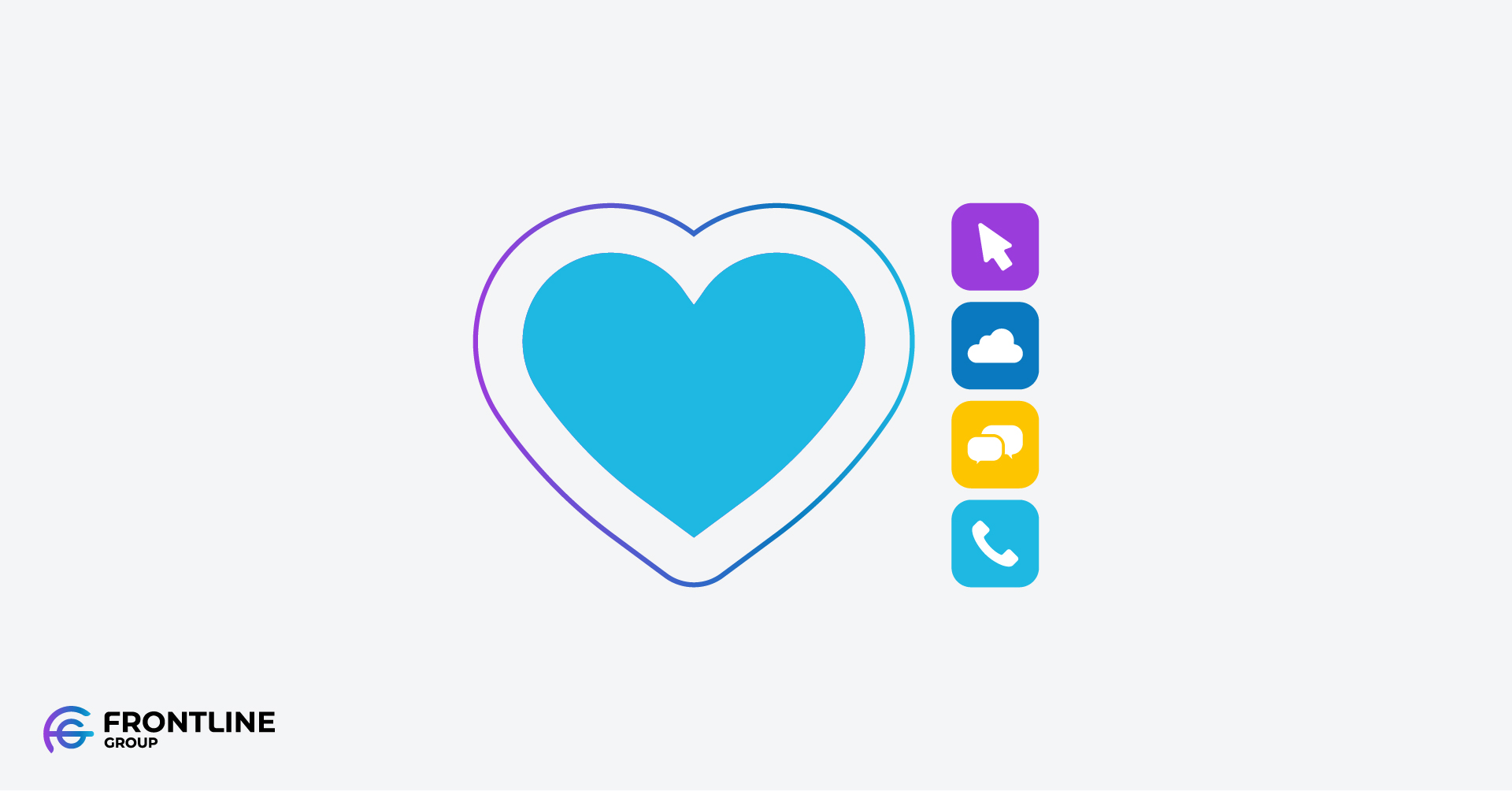
In the healthcare industry, effective communication and timely support are essential for providing quality patient care. As healthcare providers face increasing demands, the role of contact centers has become more critical than ever. From managing patient appointments to offering round-the-clock support, contact centers serve as a vital link between patients and healthcare providers. By handling a wide range of tasks, contact centers enable healthcare organizations to focus on their core mission: delivering exceptional patient care.
The growing complexity of healthcare services, combined with the need for patient confidentiality and regulatory compliance, makes it imperative for contact centers to be equipped with specialized knowledge and tools. Whether it’s managing sensitive patient data, providing follow-up care, or assisting with billing inquiries, contact centers play a pivotal role in the healthcare ecosystem. Let’s explore the unique needs of healthcare providers, the key services that contact centers offer, and how Frontline Group’s tailored solutions can support healthcare organizations in meeting their goals.
The Unique Needs of Healthcare Providers
Healthcare providers operate in a complex and highly regulated environment where precision, confidentiality, and responsiveness are incredibly important. Unlike other industries, the stakes in healthcare are high, with patient well-being often dependent on the accuracy and timeliness of information. Contact centers serving healthcare providers must be attuned to these unique demands to effectively support their operations.
Patient Confidentiality
One of the most critical aspects of healthcare is the protection of patient data. The Health Insurance Portability and Accountability Act (HIPAA) sets strict standards for safeguarding medical information. Contact centers that handle healthcare-related calls must ensure that all communications and data management practices comply with HIPAA regulations. This includes implementing secure data transmission protocols, access controls, and staff training to prevent unauthorized access or disclosure of sensitive information.
Timely Communication
In healthcare, time is often a decisive factor in patient outcomes. Contact centers must provide timely and accurate communication to facilitate the coordination of care. Whether it’s scheduling an urgent appointment, delivering test results, or providing critical information to patients, the ability to communicate quickly and effectively is essential. Delays or errors in communication can lead to serious consequences, making reliability a key requirement for healthcare contact centers.
Complex Scheduling
Managing appointments, follow-ups, and reminders is a significant challenge in the healthcare industry. Patients often require multiple appointments across various specialties, and missed or delayed appointments can disrupt care plans and lead to poorer health outcomes. Contact centers play a crucial role in managing these schedules efficiently, reducing no-shows, and ensuring that patients receive the care they need when they need it.
24/7 Availability
Healthcare is a round-the-clock industry, and patients often require assistance outside of regular business hours. Contact centers must be available 24/7 to provide support, whether it’s answering questions, managing urgent care needs, or coordinating with on-call medical staff. This continuous availability is critical for maintaining patient trust and ensuring that healthcare providers can deliver consistent, high-quality care.
Supporting Telehealth Services
With the rise of telehealth, contact centers have become even more integral to healthcare delivery. Telehealth allows patients to receive medical consultations, follow-up care, and monitoring remotely, which has become increasingly popular, especially in rural or underserved areas. Contact centers support telehealth by coordinating virtual appointments, providing technical assistance to patients unfamiliar with the technology, and ensuring that telehealth sessions are seamlessly integrated into the patient’s overall care plan. The ability to manage telehealth services effectively not only enhances patient access to care but also contributes to better health outcomes by removing barriers to timely medical advice and treatment.
Meeting these unique needs requires contact centers to be highly specialized, equipped with the right tools, and staffed by individuals who understand the complexities of the healthcare industry.
Key Services Contact Centers Provide to Healthcare Providers
Contact centers are crucial for supporting healthcare providers in delivering high-quality care. By offering a range of specialized services, contact centers help manage the complexities of healthcare operations, streamline communication, and enhance patient experiences. Here are the key services contact centers provide to healthcare providers:
Patient Scheduling and Appointment Management
Efficient scheduling is vital for maintaining a smooth flow of operations in healthcare settings. Contact centers manage patient appointments by coordinating schedules across multiple departments, reducing the likelihood of conflicts or overlaps. They also handle appointment reminders, follow-ups, and cancellations, which help reduce no-shows and ensure patients receive the care they need on time. This service is particularly valuable for managing high volumes of patients and complex schedules, improving overall efficiency and patient satisfaction.
Patient Support and Follow-Up
Providing ongoing support to patients is essential for ensuring adherence to treatment plans and achieving positive health outcomes. Contact centers offer patient support by answering questions, providing medication reminders, and offering guidance on post-discharge care. They also conduct follow-up calls to check on patients’ progress, address any concerns, and schedule necessary follow-up appointments. This continuous engagement helps build trust between patients and healthcare providers, leading to better patient outcomes.
Triage and Emergency Support
In urgent situations, contact centers play a critical role in triaging patient calls and directing them to the appropriate level of care. Trained agents assess the urgency of each call and prioritize those that require immediate attention, ensuring that patients receive timely care. For non-emergency cases, contact centers can provide information, schedule appointments, or connect patients with the appropriate healthcare professionals. This triage service is essential for managing high call volumes during peak times and ensuring that all patients receive the care they need.
Billing and Insurance Queries
Billing and insurance can be complex and confusing for patients. Most of us have spent some time on the phone with an agent collecting information regarding billing statements and insurance. Contact centers assist by answering questions about billing statements, helping patients understand their insurance coverage, and processing payments. They also handle inquiries related to insurance claims, helping patients navigate the often-complicated reimbursement process. By providing clear and accurate information, contact centers alleviate patient stress and improve the overall experience.
The services provided by contact centers are integral to the smooth operation of healthcare providers. By managing these critical tasks, contact centers enable healthcare organizations to focus on their primary mission, delivering quality care.
The Importance of Data Security in Healthcare Contact Centers
In the healthcare industry, data security is not just a priority it is a legal and ethical obligation. Contact centers handling healthcare information must adhere to stringent security protocols to protect patient data from unauthorized access, breaches, and misuse. The sensitivity of the information involved makes robust data security practices essential for maintaining trust and compliance with regulatory standards.
HIPAA Compliance
The Health Insurance Portability and Accountability Act (HIPAA) sets the standard for protecting sensitive patient data in the United States. Contact centers that handle healthcare-related calls must ensure that all communications, data storage, and processing activities comply with HIPAA regulations. This includes implementing secure data transmission methods, maintaining audit trails, and ensuring that all employees are trained on HIPAA requirements. Non-compliance can result in severe penalties, including fines and legal action, as well as significant reputational damage.
Encryption and Access Controls
To safeguard sensitive patient information, contact centers must employ encryption and access control measures. Encryption ensures that data is secure both in transit and at rest, preventing unauthorized parties from accessing or altering the information. Additionally, access controls limit data access to only those individuals who need it to perform their job functions. Role-based access, combined with multi-factor authentication, adds an extra layer of security, ensuring that patient information is protected at all times.
Training and Awareness
Data security is not just about technology; it also involves the people who handle the data. Regular training and awareness programs are essential to ensure that all contact center staff understand the importance of data security and are equipped to follow best practices. This includes recognizing phishing attempts, understanding the importance of secure password management, and knowing how to handle sensitive information. A well-informed staff is the first line of defense against potential data breaches.
Data security is fundamental to the operation of healthcare contact centers. By adhering to best practices and regulatory requirements, contact centers can protect sensitive patient information, maintain trust, and ensure compliance.
How Frontline Group Supports Healthcare Providers
Frontline Group is dedicated to delivering exceptional contact center services tailored to the unique needs of healthcare providers. Our solutions are designed to enhance patient care, streamline operations, and ensure the highest standards of data security and compliance.
Customized Solutions for Healthcare Providers
At Frontline Group, we recognize that no two healthcare providers are the same. That’s why we offer customized contact center solutions that are specifically designed to meet the unique needs of each client. Whether it’s managing complex appointment schedules, providing telehealth support, or handling sensitive patient information, our services are tailored to ensure that healthcare providers can operate efficiently while delivering the best possible care.
Commitment to Quality and Security
Quality and security are at the core of everything we do at Frontline Group. Our protocols and procedures are designed to ensure that we meet the highest standards in the industry. This commitment extends to our training programs, where our staff is continually updated on the latest best practices and regulatory requirements. We take pride in our ability to provide healthcare providers with reliable, secure, and effective contact center services.
Choosing the right partner for your contact center needs is crucial, especially in the healthcare industry. Frontline Call Center’s comprehensive security measures, commitment to compliance, and tailored approach make us an effective and reliable choice for healthcare providers. Our experience and expertise ensure that your patients receive the best possible support while your operations run smoothly and securely.
Work With Us
Contact centers play an indispensable role in supporting healthcare providers by managing patient communication, ensuring timely scheduling, and safeguarding sensitive information. As the demands on healthcare providers continue to grow, the importance of having a reliable, secure, and efficient contact center partner cannot be overstated. Our tailored solutions, advanced technologies, and unwavering commitment to quality make us the ideal partner for healthcare providers looking to enhance patient care and streamline their operations.
Contact us today to learn about the benefits of a dedicated contact center solution designed to meet the unique needs of the healthcare industry.

Every business is different, that’s why all of our solutions are custom built for you. Let’s chat and see how we can help improve your contact center.

